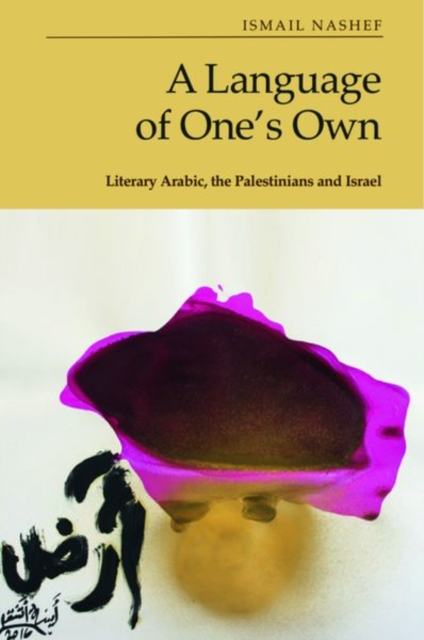
A Language of One's Own : Literary Arabic, the Palestinians and Israel Hardback
by Ismail Nashef
Hardback
Description
Demystifies the roles of literature and literary practices in the Palestinian national movement since 1948Offers a fresh case study of literary colonial contexts, in which language, literature, and socio-political regime are re-examined based on new dataOpens a new tradition of addressing literary criticism as part of the Palestinian literary field by incorporating economic, social, and institutional factors in the analyses of literary ArabicProvides new and genuine insights regarding the literary settler colonial context in Palestine, and demystifies many of the accepted notions regarding the roles of literature and literary practices in the Palestinian national movement. Unlocks the umbilical relation between the language and the nation in the Palestinian and Israeli contexts, and it frees literature and literary practices from the preordained roles derivative from the national ideologies of both Palestinians and Israelis. Argues that reading and writing practices are a form of social and political agency in themselvesDemystifies many of the accepted notions regarding the roles of literature and literary practices in the Palestinian national movementFollowing the establishment of Israel in 1948, literary Arabic became one of the main representative of Palestinian national identity within Israel, and therefore a contested public site.
Various state agencies and Palestinian groups were active in this public site, calling for certain ways of reading and writing in Arabic.
These ways influenced the processes of reshaping the Palestinian national identity that were ignited by the war of 1948.
Addressing the Palestinian reading public in Israel, both state agencies and Palestinian groups used literary criticism, as well as other genres, to promote and inculcate their preferred ways of reading and writing. Ismail Nashef argues that since 1948 there have been three distinct modes for addressing the Palestinian reading public through literary Arabic: the public intellectual mode, the academic mode and the professional expert mode.
Based on rich literary, historical and legal data, the book offers a fresh case study of literary settler colonial contexts, in which language, literature and socio-political regime are re-examined based on new data.
It demonstrates the impossibility of rebuilding Palestinian national identities within the Zionist regime, highlighting the literary embodiment of the ongoing settler colonial condition of Palestinians in Israel
Information
-
Out of stock
- Format:Hardback
- Pages:256 pages
- Publisher:Edinburgh University Press
- Publication Date:31/07/2023
- Category:
- ISBN:9781399512015
Other Formats
- PDF from £60.21
- EPUB from £60.21
Information
-
Out of stock
- Format:Hardback
- Pages:256 pages
- Publisher:Edinburgh University Press
- Publication Date:31/07/2023
- Category:
- ISBN:9781399512015






